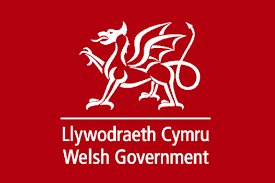DCMS publish policy paper – Connectivity, Content and Consumers: Britain's digital platform for growth
Today the Department for Culture, Media and Sport publish the policy paper Connectivity, Content and Consumers: Britain’s digital platform for growth.
We are pleased to share that the Broadband Stakeholder Group has been named as the key conduit to assess what the commercial requirements will be as part of the development of an overall UK digital communications infrastructure strategy for 2015 to 2025. We look forward to working with government, industry and others on this.
There are a number of key areas below that will be of interest to the wider broadband community:
1. On World-class connectivity and digital inclusion:
- Reiteration of headline infrastructure ambitions (as articulated in the Spending Review / Investing in Britain’s Future): £1.6 billion of public funds to extend superfast broadband to 95% of premises by 2017 and exploring with industry how to expand coverage further, using more innovative fixed, wireless and mobile broadband solutions, to reach at least 99% of premises by 2018 (p.17)
- A 10-year Spectrum Plan to be published in early 2014: This will include the timeframe for key decisions on the potential future clearance of 700MHz; the public sector release programme with the planned sales and sharing opportunities for 500MHz below 5GHz by 2020; the spectrum requirements of the emergency services and how best to meet their future needs and improve on current practice; and, meeting the EU’s objective for at least 1200MHz to be made available to mobile broadband (p.18-20).
- Spectrum Management: Government “will give Ofcom the power to run auctions where some of the proceeds are shared with the licensees that have surrendered spectrum rights???. Government also welcome industry efforts re the Spectrum Forum.
- There will be the alignment of TV multiplex operator and PSB licences from 2024-26 (p.18-20)
- Further Government aims to reduce red tape (building on the Growth and Infrastructure Act and completed changes to secondary legislation): Government is committed to finding more ways to support the deployment of mobile infrastructure, and have consulted on a series of measures to streamline the planning process for mobile equipment. They will encourage mobile infrastructure-sharing, extend and clarify permitted development rights and allow for faster upgrading and replacement of existing mobile communications equipment which in turn will provide greater access to networks in rural areas where connectivity is currently the most limited. Further to this, there is intention to “amend the Electronic Communications Code, which governs access to land by communications providers and compensation to landowners, to allow easier deployment of broadband infrastructure. The Law Commission has reviewed the Code; we are considering its report and will legislate as needed.??? (p.21).
- Digital Inclusion: the paper highlights ongoing Government support for programmes run by Go ON, BBC, Big Lottery Fund and the public library network, as well as with local authorities and UK Online Centres. In addition, the Government Digital Service in the Cabinet Office is “establishing a cross-Government Digital Inclusion Team, which will develop a delivery-focused strategy, co-ordinate and embed central Government’s activity on digital inclusion??? (p.21-22).
- Forward strategy: “We will ask professional technology bodies to advise on where technology might take us, and we will ask the Broadband Stakeholder Group to look at the commercial requirements.??? (p.23)
2. World-beating content
- Support investment by our Public Service Broadcasters (PSBs): Government will legislate to maintain the prominence of Public Service Broadcasters at the top of Electronic Programme Guides (p.25-26)
- Access to Public Service programmes: The Government wants to see zero net charges, where the fees for access to the main platforms and for PSB channels cancel each other out (p.26)
3. Consumer Confidence and Safety
- Standards in the digital world: “we want industry and regulators to work together on a voluntary basis to ensure that there is a common framework for media standards, so that a more consistent approach applies across different media, and to work together to make sure consumers understand what content has been regulated??? (p.31)
- Illegal Material: “a new proactive role for the Internet Watch Foundation in searching for images of child abuse on the internet, working closely with the Child Exploitation and Online Protection Centre (CEOP) and industry to ensure that those images are removed, and that victims are identified and perpetrators are prosecuted. This work will be supported by funding from our four largest internet service providers – Virgin Media, BSkyB, BT and TalkTalk – and Google.??? There will be a progress report in October on Child Internet Safety and child protection tools, with an indication from No.10 that legislation will be introduced if progress is deemed to be too slow (p.34). There is an expectation that smaller ISPs should follow the lead of larger ISPs here (p.36).
4. Cost of Living
- Gaining-Provider Lead Switching: Legislating to give Ofcom a duty to ensure a consistent and effective experience for consumer switching, particularly in regard to bundles (p.40)
- Traffic Management: Ofcom working with ISPs to encourage them to make traffic management policies for transparency in voluntary manner. They are “keeping the area under review???. (p.40-41)
- Consumer Rights Bill: mentions new proposed category of digital content in consumer law (p.42-43)
- Competition in the broadcasting landscape: Mention of approach to dealing with converging media landscape, including “we will consult on the effectiveness of the ex-ante competition regime for broadcasting??? in parallel with the wider examination of the appeals process led by BIS (p.43-44)
As such, we understand that the items which will or may be pursued through legislation throughout the paper are as follows, and that Government will issue consultations in due course in relation to a number of these issues:
- To allow Ofcom to run incentive auctions for the release of spectrum, and to facilitate dynamic spectrum access, so that if spectrum is not in use by its primary user, it can be flexibly reallocated to others
- To align the end dates of TV multiplex operator and Public Service Broadcast licences between 2024 and 2026
- To enable Ofcom to act more flexibly in its enforcement of Wireless Telegraphy Act licences by allowing it to apply monetary penalties. There is also intention to make other minor amendments to the Wireless Telegraphy Act 2006 to remove anomalies and improve the effectiveness of enforcement
- Legislation will be considered in three years’ time on increasing the levels of subtitles and audio-description for on-demand content if satisfactory progress has not been made
- To maintain position of PSBs at top of EPGs
- Launching a consultation on zero net charges for access to public service programmes in the autumn, before bringing forward legislative proposals if required
- A review of the EU framework for legal copyright is on-going, with a view to a decision in 2014 on whether legislative reform is needed
- Rapid developments in Connected TV will mean that there will be ongoing Government review to ensure that audiences are protected to the level that they choose
- If progress is slow on internet child safety in October, legislation will be considered
- To clarify and strengthen the rules for regulated on demand services to ensure that R18 material is put behind access controls
- To close a loophole in the Criminal Justice and Immigration Act 2008, so that it is a criminal offence to possess extreme pornography that depicts rape
- To enable Ofcom to more easily share information about companies undertaking nuisance calls
- To give Ofcom a duty to ensure a consistent and effective experience for consumers switching between bundles
- Legislation on Premium Rate Telephone Services may be clarified if breaches continue
- New proposed category of digital content in consumer law in the Consumer Rights Bill
- Consultation on the effectiveness of the ex-ante competition regime for broadcasting
- Regulatory and competition appeals consultation already under way here.
A consultation on media ownership and plurality was also released today, available here. Alongside the release of the Policy Paper, there are a number of impact assessments here.
As always, we welcome any views and feedback on the paper and we will be keeping a keen eye on ongoing developments in this area.





